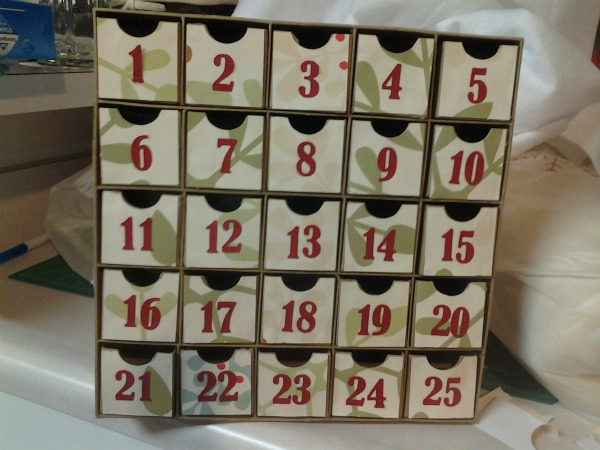Unpopular Passages: Life and the Menstrual Laws
This is the second in my series Unpopular Passages. Click here to see all the entries.
“When a woman has a discharge, and the discharge in her body is blood, she shall be in her menstrual impurity for seven days, and whoever touches her shall be unclean until the evening. And everything on which she lies during her menstrual impurity shall be unclean. Everything also on which she sits shall be unclean.” Leviticus 15:19-20
It’s easy to be disappointed. From the big to the small, we’ve become hardwired for distrust. The shirt we just bought snags and the thin material creates a hole. Our new piece of furniture is immediately scratched and peeling. We scour reviews looking for reliability right along with the return policy. This doesn’t end with consumer products, either. Our social media feeds or Netflix binges may delight for a moment, but we know even they never leave us full. Eventually the sugar high wears off, and our stomachs are left aching for more. Will anything give true satisfaction?
Enter: the menstrual laws of the Old Testament. No, seriously. These are often one of many laws we skip over once we arrive at Leviticus in our Bible reading. At worst they are defined as misogynistic and oppressive, and at best tagged as ceremonial and placed in the pile marked “no longer applicable”. Though it’s true the guidelines found in these laws do not continue into the New Covenant under Christ, we do ourselves a great disservice when we skim past them.
The menstrual laws actually point us to exactly what we are looking for to counteract our disappointing world.
Life and Death
The menstrual laws do this because they are not primarily about a woman’s body. Instead they are a wonderful example of the contrast of life and death, specifically showing us the kind of life found in the Lord.
The Old Testament is filled with the theme of life versus death. Deuteronomy tells us that God set before Israel life and death (Deut. 30:19). Nearness to God resulted in life—flourishing, crops, and multiplied descendents. Even the historical landscape of the Israelites’ journey imaged this reality as they walked from the harsh, dry wilderness of their rebellion, and towards the lush, life-giving Promised Land of the Lord.
David was correct to say that the Lord knows the path to life because true satisfaction and purpose is found in God himself (Ps. 16:11). The Father after all, is one who brings forth life, Jesus proclaimed he was the Resurrection and the Life, and the Spirit too we read in Ezekiel is what gives life to our dry bones (John 11:25, Ezekiel 37:14).
It makes sense then that this concept of life and death is an important part of the Levitical laws surrounding the Tabernacle (the place where Israel would commune with God). Sin made one unclean to be near God’s presence, but not all of the cleanliness laws had to do with immorality. Clearly there is nothing sinful about menstruation.
Instead this law showed the Israelites a glimpse of their Lord. It demonstrated that God is so pure that he can’t commune with death in any form. This means that the loss of blood of a woman—even if it had nothing to do with a child still held a small link to a potential loss and the loss of life-giving fluids.
For this reason the woman must declare herself unclean, keep separated from worship, and anyone who touched her would be likewise unclean (Lev. 15:19-24). This law has nothing to do with oppression towards women or shame (for there are equal laws for men’s emissions and a certain animals). Instead we see its beauty in demonstrating as Michael Morales says that “the nearer one approaches YHWH, the closer one gets to life in abundance.”1 Thus it makes sense that any hint of death couldn’t exist near such a presence.
Do you see the glory of God’s fullness displayed here? When he says he is the bread of life, these laws prove he means it’s bread of only the purest form.
Choose Life
So does this mean our life as Christians will be guaranteed perfect and care-free? No, not by a long shot. In fact, Christ promises the opposite (John 16:33). But regardless of our outer circumstances we can be sure that the satisfaction, joy, purpose, comfort, and love we find in knowing our Father through the Son by the Spirit will always be the purest. We won’t find anything better. We won’t find even a hint of disappointment in the person of our Lord. It’s impossible, for there cannot even be the potential of death near him.
Every month the Israelite women were given a chance to contemplate this truth. As they followed their cleansing rituals and made their offerings, their minds became ingrained with the reality that Yahweh was the only source of true, pure life. Maybe we would do well to remember this as well.
In a world of disappointments, our Father will never leave us wanting. Will we grab hold of the life found in the person of Jesus Christ to strengthen us as we battle anxiety, chronic pain, or any other host of difficulties around us? Will we depend upon the Spirit and his Word as he comforts our fears for our family or provides help when our spouse fails us? Will we turn to him in prayer and choose his merciful ear before the distractions around us?
Oh that we may we each day run towards true life, and remember He will never disappoint us.
- Morales, L. Michael. Who Shall Ascend the Mountain of the Lord?: A Biblical Theology of the Book of Leviticus. Downers Grove, IL: Apollos, InterVarsity Press, 2015. [↩]




